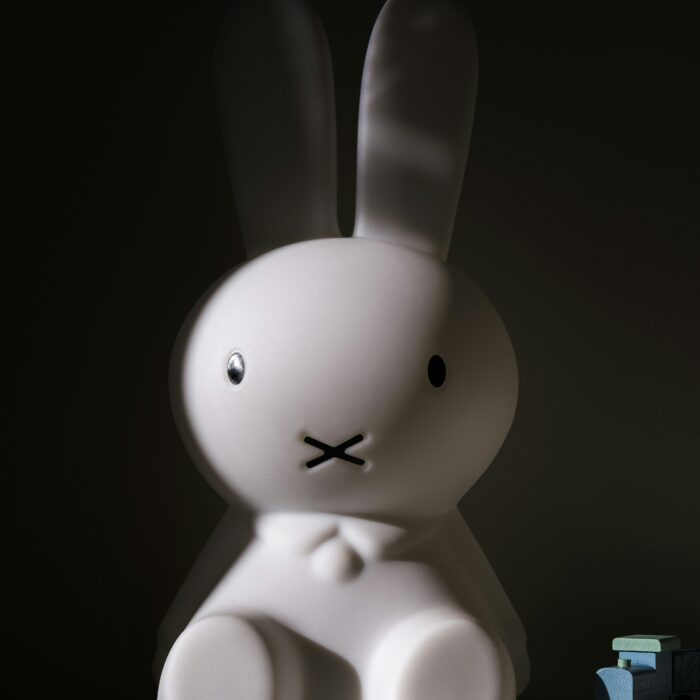You have no items in your cart. Want to get some nice things?
Go shoppingJANUARY 1976
When I opened my curtains, it was there. Waiting for me.
Whilst we all slept it had appeared, pressing itself into the lawn and stretching along the branches of the trees. It gripped the washing line and pushed its way through the gaps in our fence, and when it reached the rooftops, it crawled across the chimney pots and the television aerials, and forced everything to wear a disguise. I peered below and watched Remington try to make his way across the patio. Each time he put a paw down, half a Labrador disappeared. He gave up and went back inside.
When I walked into the kitchen, my mother was staring out of the window with a tea towel over her arm and saying ‘Well that’s put the tin lid on it.’
Even my father looked up from his newspaper. ‘It might melt,’ he said. ‘It could be gone by lunchtime.’
‘The sky’s full of it, Derek.’ My mother pointed, to show him where the sky was. ‘Full of it.’
I stared at the sky. It looked no different.
I decided not to say anything about going to school. I had discovered that it’s always best to see what the general feeling is, before you go ahead and make your thoughts public.
‘Well, I’m going to try to get into work.’ My father folded his newspaper.
‘Oh, I wouldn’t,’ I said, from behind the cornflakes. ‘You might break a leg, or perhaps both arms. It’s far too dangerous.’ I dug around in the cereal box for the toy. ‘It’s even more dangerous for school children,’ I said.
My mother frowned at me.
‘I would imagine,’ I said.
My mother turned to my father. ‘If you’re going to try and get anywhere, you should try to get to the Co-op so we can stock up on bread.’
‘I expect the Co-op isn’t even open,’ I said. ‘I expect nowhere is. Especially the schools. It’s far too dangerous.’
My father frowned at me.
‘I would imagine,’ I said.
My mother opened the pantry door and began lifting things up and putting them down very loudly. ‘Well someone has to go. We need provisions.’
‘What are provisions?’ I said.
My mother re-emerged from the pantry. ‘Food, Grace. We’re going to run out of Angel Delight, for a start.’
I looked at my father. ‘Thinking about it, it’s probably not that dangerous after all.’
In the end, my mother decided not to send me to school, without me even needing to do any hinting. She wasn’t going to let me out of the house, until I promised to stick to the pavements and wear my gloves at all times.
The Avenue was very bright. When I looked up from closing the door, the street glared back at me in white silence. We were surrounded, walled in by drifts of winter, and trapped in a place that seemed as mysterious and uncharted as a foreign land.
Mr Forbes and Eric Lamb were in the middle of the street, trying to dig a way out for everyone. Mr Lamb was shovelling and swearing, and Mr Forbes was leaning on his spade and explaining the best way to do it. Eric Lamb looked up and waved, and I took my gloves off and waved back.
‘Be careful, Grace,’ he shouted, ‘the drifts are quite deep.’
‘I’ll be fine, Mr Lamb,’ I said. ‘I’m nine and I’m sticking to the pavements.’
(Although, to be fair, everything was so well disguised, it was impossible to see where the pavements ended, and the rest of the world began).
I walked in a corridor of quiet, along a narrow channel the drifts hadn’t managed to reach, past rows of houses made blank and indifferent by a covering of weather. Everything was identical. The colours, the sounds, the shapes – all the things that make us what we are – had disappeared, and there was nothing left to tell us apart. It felt like the teacher cleaning the blackboard, so we could all start again from scratch. When I reached the end of The Avenue, my feet were so cold I couldn’t feel my toes anymore. I had to stamp my wellingtons out to find them again, and by the time I’d finished stamping, Tilly had appeared from around the corner. She was buttoned into a duffel coat right up to her neck, and wore two scarves and a straw Panama.
‘It was the only hat I could find,’ she said.
Written to coincide with the launch of her debut novel, The Trouble with Goats and Sheep, here’s part one of Joanna Cannon’s original seven part short story The Greatest of These. Find part two tomorrow at Bookanista, part three at For winter nights, part four at The Writes of Woman, part five at popshotpopshot, part six at The Debrief and the conclusion at London Review of Books.

About Joanna Cannon
Joanna Cannon graduated from Leicester Medical School and worked as a hospital doctor, before specialising in psychiatry. She was born and raised in the Peak District, where she continues to live with her family and her dog. THE TROUBLE WITH GOATS AND SHEEP is her first novel.






One comment